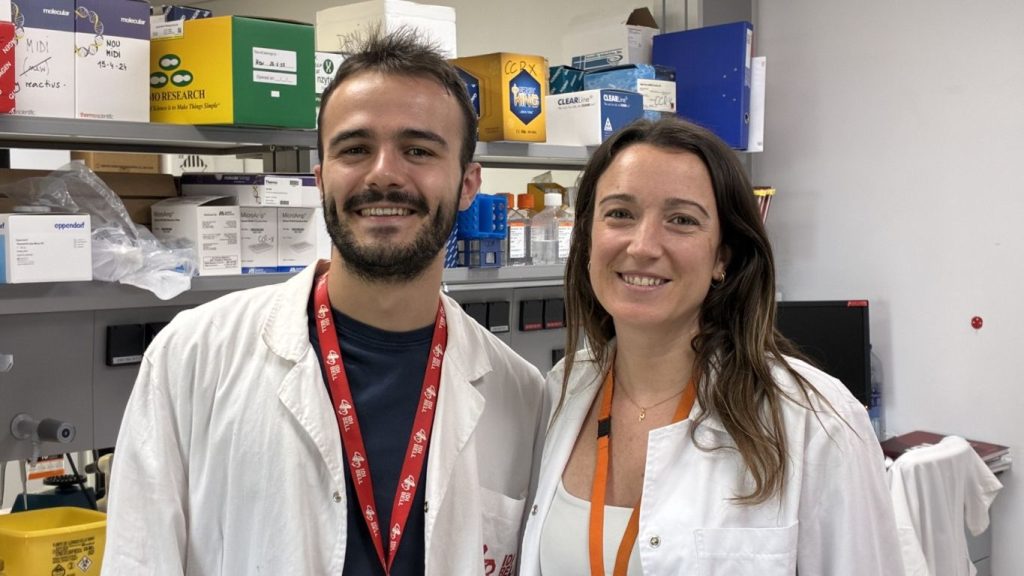DNA replication is an essential process for cell division. To ensure their fidelity, ε and δ polymerases—encoded by the genes POLE and POLD1—not only synthesize new DNA strands, but also correct potential errors thanks to their exonuclease activity. When this corrective function is compromised, there is a massive accumulation of mutations that can promote the development of various types of cancer.
In a study recently published in the journal Modern Pathology, the Hereditary Cancer research group of the Bellvitge Biomedical Research Institute (IDIBELL) and the Catalan Institute of Oncology (ICO), has characterised in depth all the pathogenic variants known to date in the POLE and POLD1 genes, evaluating their location, pathogenicity, clinical involvement and associated tumor mutational profile.
Mutations related to hypermutated tumors
The study includes the analysis of 360 tumors carrying somatic mutations in POLE and POLD1, as well as 250 individuals with germline mutations in these genes, belonging to 70 families described in the scientific literature. The results confirm that somatic mutations in POLE are mainly associated with endometrial tumors and, to a lesser extent, colorectal cancers, ovarian cancers and gliomas. On the other hand, germline mutations in POLE and POLD1 are linked to a syndrome of hereditary predisposition to cancer, called PPAP, which carries a high risk of developing polyposis and colorectal cancer, and to a lesser extent, endometrial cancer and other tumor types.
Tumours derived from these alterations are characterised by a high mutational load, which allows them to be classified as hypermutated or ultramutated tumours. In addition, the accumulated mutations have specific patterns, known as mutational signatures, that vary depending on the gene affected.
The clinical implication of these mutations
The study also highlights that the type of mutation and the gene involved influence key clinical parameters such as age at diagnosis, the aggressiveness of the tumour or the mutational load, which has direct implications for the clinical approach.
According to Dr. Laura Valle, principal investigator of IDIBELL and ICO and senior author of the work, “these results allow us to advance our knowledge about the POLE and POLD1 genes and the impact of their mutations both in the hereditary context and in sporadic tumors, where they cause the accumulation of an extremely high number of mutations. This phenomenon is associated with a better prognosis and greater sensitivity to immunotherapy, so it is essential to integrate it into diagnosis and therapeutic decision-making.”
This work, funded mostly by the State Research Agency and CIBERONC, represents a key advance in precision oncology. By incorporating the specific genetic profile of each patient or tumour, it allows clinical follow-up, genetic counselling, and therapeutic strategies to be personalised to better address each case.
The Bellvitge Biomedical Research Institute (IDIBELL) is a research centre created in 2004 specialising in cancer, neuroscience, translational medicine and regenerative medicine. It has a team of more than 1,500 professionals who, from the 73 research groups, generate more than 1,400 scientific articles per year. IDIBELL is owned by the Bellvitge University Hospital and the Viladecans Hospital of the Catalan Institute of Health, the Catalan Institute of Oncology, the University of Barcelona and the City Council of L’Hospitalet de Llobregat.
IDIBELL is a member of the Campus of International Excellence of the University of Barcelona HUBc and is part of the CERCA institution of the Generalitat de Catalunya. In 2009 it became one of the first five Spanish research centres accredited as a health research institute by the Carlos III Health Institute. In addition, it is part of the “HR Excellence in Research” program of the European Union and is a member of EATRIS and REGIC. Since 2018, IDIBELL has been an Accredited Centre of the AECC Scientific Foundation (FCAECC).

